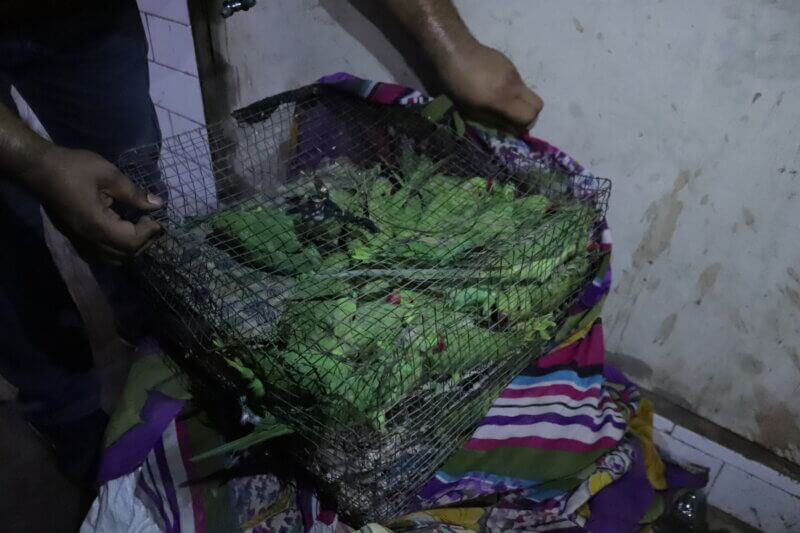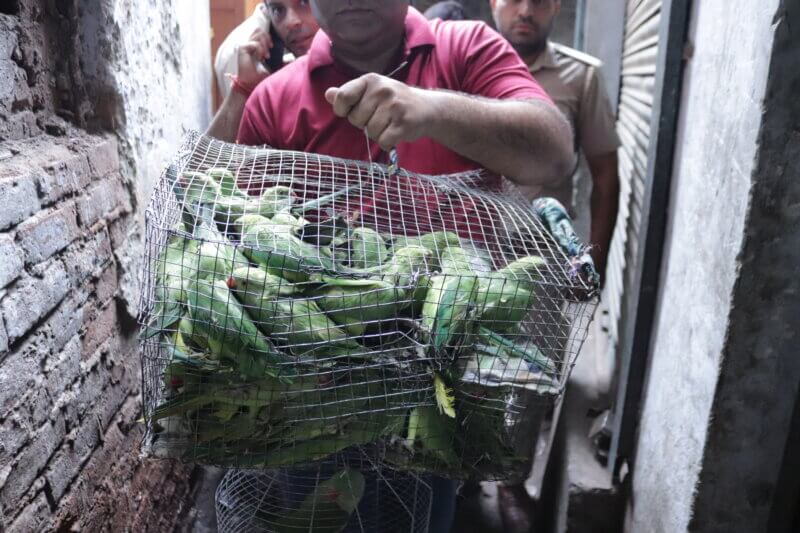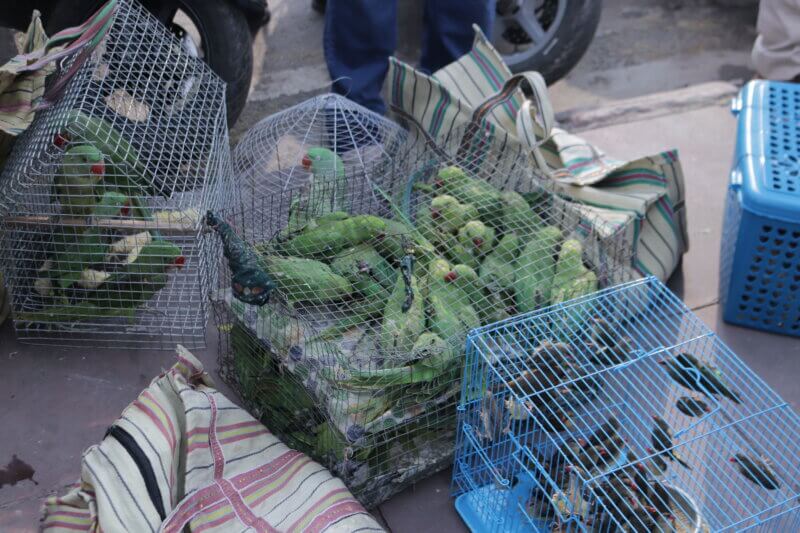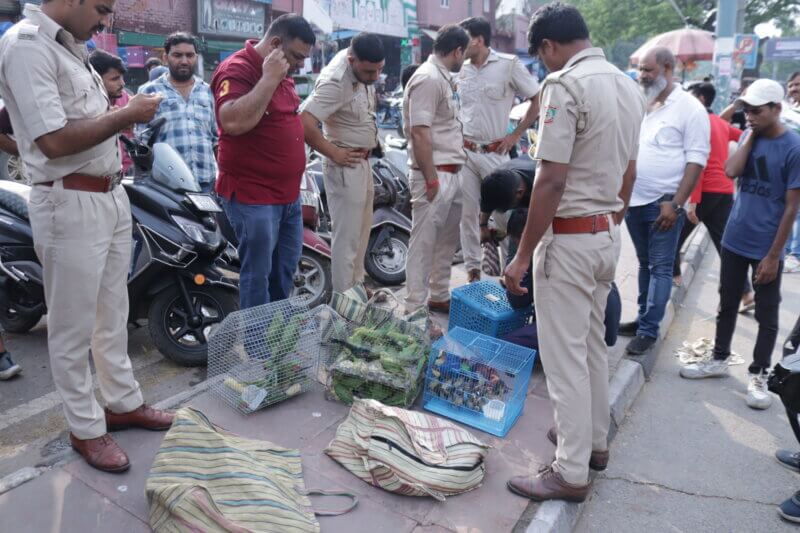Over 1000 Parakeets and Other Birds Recovered in Delhi Raid Following PETA India Complaint and With Support From Smt Maneka Gandhi
On 25 July, acting on a complaint by PETA India and with the support of the Jama Masjid Police Station, the central division of Delhi Forest Department recovered 1000 birds – including Alexandrine parakeets, finches, and other species – from shops at Kabutar Market near Jama Masjid. Many of the birds were found dead. Others were confined to dingy, filthy cages or stuffed into cloth bags. PETA India had sent a complaint to the forest department requesting that the birds be recovered and the shop owners booked. The Jama Masjid Police Station registered a first information report against the alleged perpetrators under relevant sections of the Wild Life (Protection) Act (WPA), 1972. PETA India sought the intervention of senior officials and Smt Maneka Gandhi to open two locked shops that had numerous parakeets hidden inside, after which the birds were recovered.
In March 2022, Delhi police recovered thousands of adult and baby birds from illegal traders at Kabutar Market in response to a complaint by PETA India. These birds included ring-necked and plum-headed parakeets, hundreds of munias, two common hill mynas, and a pigeon.
Following their rescue, the surviving birds were sent for a health check, treatment, and temporary rehabilitation. They will be released in their natural habitat once their recovery is complete. The few birds deemed unable to survive in nature will be sent to a sanctuary for permanent care.
Alexandrine parakeets are protected under Schedule II of the WPA, 1972. Buying, selling, or possessing this species is an offence punishable by a fine of up to Rs 1 lakh, a jail term of up to three years, or both. Endangered wildlife are also protected internationally under the Convention on International Trade in Endangered Species of Wild Fauna and Flora (CITES). Non-native endangered species protected under CITES are also protected under Schedule IV of the WPA, 1972.
In the illegal bird trade, countless birds are taken from their families and denied everything that’s natural and important to them so that they can be sold as “pets” or used as bogus “fortune-tellers”. Fledglings are often snatched from their nests, and other birds panic as they’re caught in traps or nets that can seriously injure or kill them as they struggle to break free. Captured birds are packed into small boxes, and an estimated 60% of them die in transit from broken wings and legs, thirst, or sheer panic. Those who survive face a bleak life in captivity, suffering from malnutrition, loneliness, depression, and stress.
The WPA, 1972, bans the capture, caging, and trading of indigenous birds, and non-compliance can result in imprisonment, a fine, or both. In addition, caging birds violates The Prevention of Cruelty to Animals Act, 1960, which stipulates that it’s illegal to keep or confine any animal in a cage or other receptacle that doesn’t provide them with reasonable opportunity for movement – and for an aerial bird, that includes flight.












